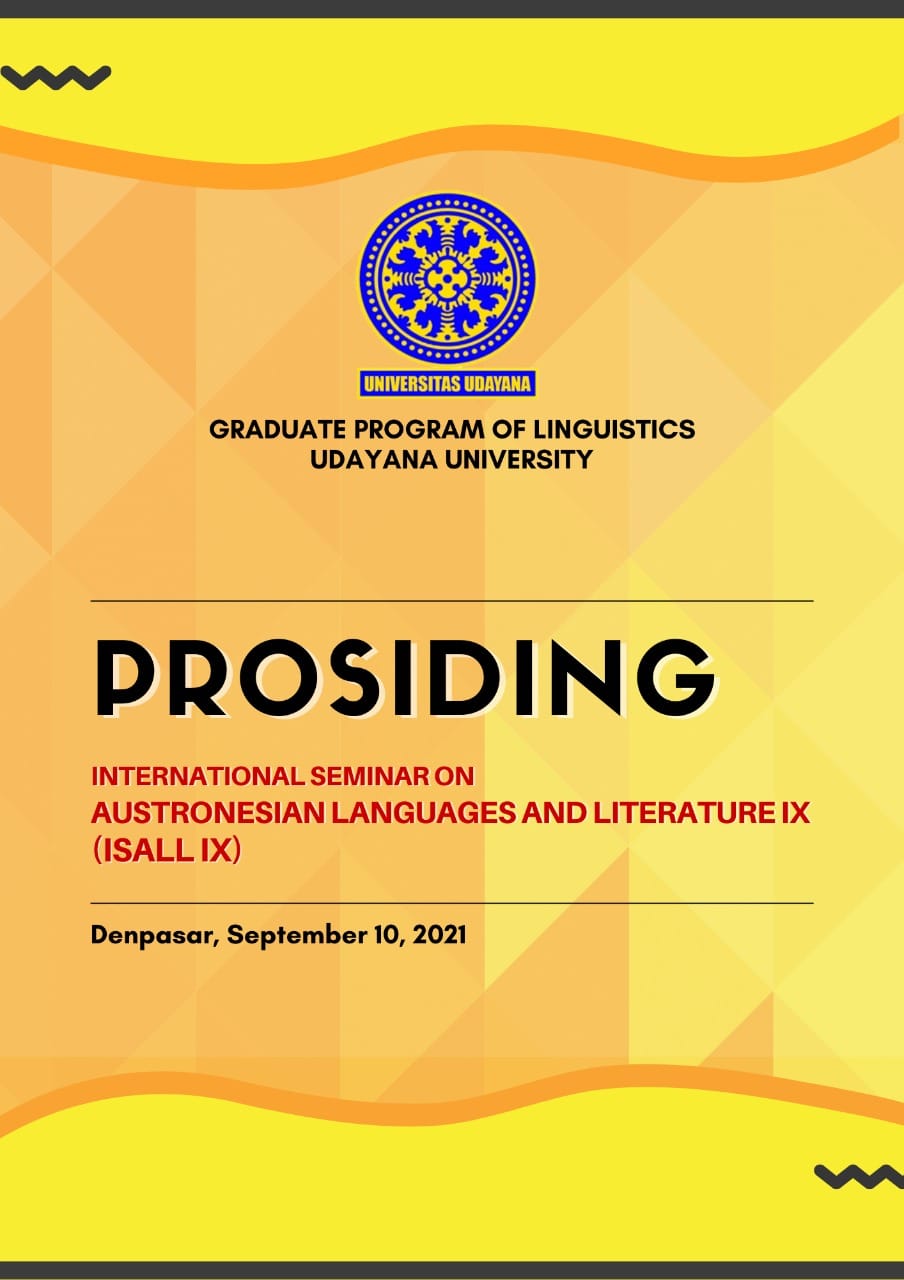Wujud Rekonsiliasi dalam Kearifan Lokal Budaya Flores
Abstract
This article aims to describe conclusions about several forms of local wisdom of Flores culture which are a description of customs and beliefs that are able to restore a situation or relationship to be good as before and describe the similarities and differences between these forms of reconciliation from a religious point of view. This study uses a qualitative approach. Data was collected by means of interviews, documentation, and observation. The results showed that there is local wisdom of Flores culture which is a form of reconciliation, namely wale, waja, and tala. These three things are an effort to restore a relationship in relation to traditional marriage. When viewed from a religious perspective, these three things have similarities and differences with the sacrament of penance. The similarities are seen in purpose, substitution, non-representation, and reconciliation. What distinguishes it is the form of execution/implementation, the person involved, the form of substitution, the method of recognition, and the intention
References
Badan Pengembangan dan Pembinaan Bahasa. (2017). Kamus Besar Bahasa Indonesia. Jakarta: Adi Perkasa.
Balo, D. (2016). Tapak-Tapak Hidup Kristiani dari Kelahiran sampai Kematian. Malang: Dioma.
Departemen Dokumentasi dan Penerangan KWI. (1993). Dokumen Konsili Vatikan II. Jakarta: Obor.
Konferensi Waligereja Indonesia. (1996). Iman Katolik. Jakarta: Obor.
Konferensi Waligereja Regio Nusa Tenggara. (1995). Katekismus Gereja Katolik. Ende: Nusa Indah.
Konradus, D. (2018). Politik Hukum Penyelesaian Konflik Pengelolaan Konservasi yang Humanis: Suatu Kajian Berbasis Kearifan Lokal Masyarakat Adat. Hukum. 219-243.
Labu, N. (1994). Penilaian Moral Atas "Waja" Pada Orang Ratogesa-Ngadha. Maumere: STFK Ledalero.
Lestariningsih, A. D. (2020, 09 30). Kebudayaan Jalan Rekonsiliasi: Kompas.co.Retrieved 03 09, 2021, from Kompas.co: kompas.id
Ly, T. (2018). Rekonsiliasi Kultural Suatu Studi Terhadap Budaya Henged'u Suku Sabu. Studi Budaya, 34-47.
Moleong, L. J. (2017). Metode Penelitian Kualitatif. Bandung: Remaja Rosdakarya.
Muhni, D. A. (1994). Moral & Religi Menurut Emile Durkheim & Henri Bergson. Yogyakarta: Kanisius.
Prasetijo, A. (2000). Konsep Rekonsiliasi. Etnobudaya, 12-25.
Ranjabar, J. (2016). Sistem Sosial Budaya Indonesia (Suatu Pengantar). Bandung: Alfabeta.
Rijal, A. (2016, 03 16). Tempo.co. Retrieved 03 08, 2021 from tempo.co:tekno.tempo.co
Schreiner, L. (2019). Adat dan Injil: Perjumpaan Adat dengan Iman Kristen di Tanah Batak. Jakarta: Gunung Mulia.
Schreiter, R. J. (2001). Pelayanan Rekonsiliasi. Ende: Nusa Indah.
Tantama, Y. (2014, 08 10). Berbagi Kisah, Renungan dan Ziarah Katolik. Retrieved 03 06, 2021, from Berbagi Kisah, Renungan dan Ziarah Katolik:http://www/wordpress.com
Tara, T. (2017). Memahami Model-Model Teologi Kontekstual Stephen B. Bevans Dalam Konteks Budaya Ende-Lio Sebagai Bagian Dari Kejujuran Berteologi. Stipar Ende, 1-12.


